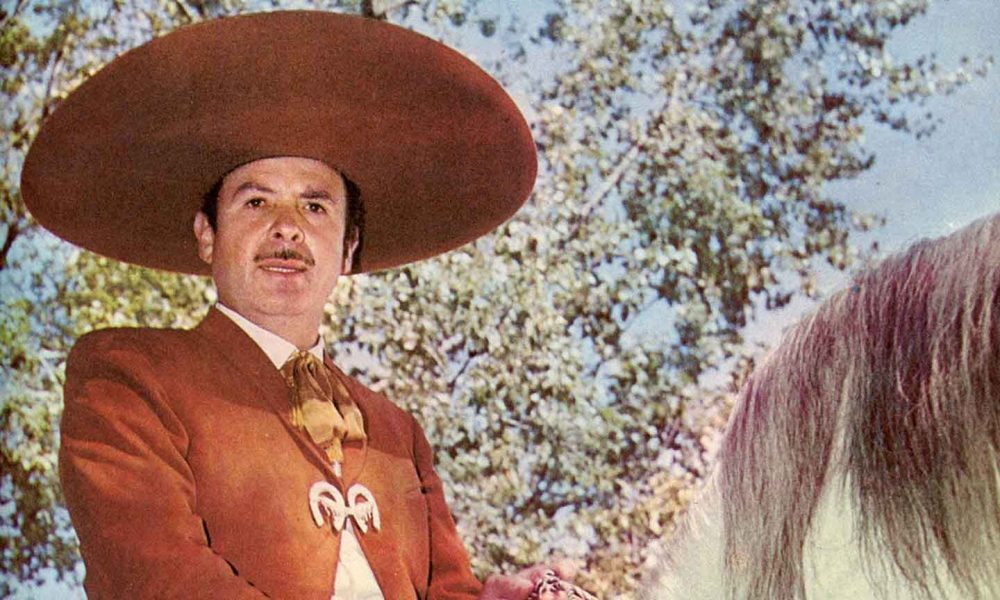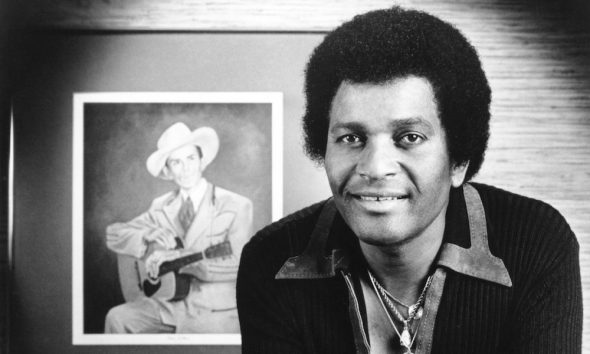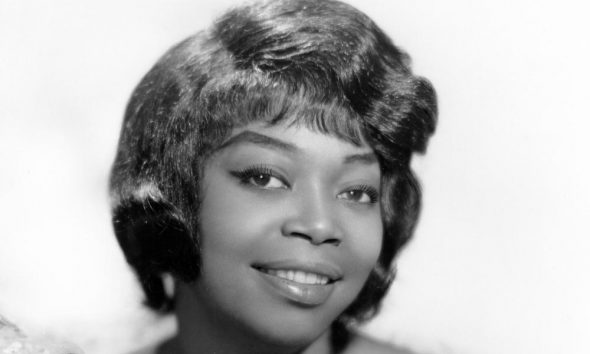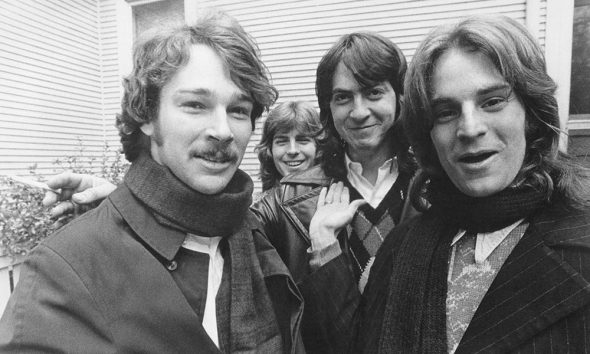Best Antonio Aguilar Songs: 20 Ballads With Mariachi
An introduction to Mexico’s iconic singing cowboy.

In downtown Los Angeles, there’s a bronze statue of Antonio Aguilar dressed in an embroidered charro suit and wide sombrero, singing atop a horse. It’s one of the rare tributes in a public space to a musician, and, even more unusual, one who was a Latino immigrant to the United States. The monument recreates a heroic picture of Aguilar as Mexico’s iconic singing cowboy, an image that will always be associated with his songs.
“He is a combination of Frank Sinatra and John Wayne together. In one,” a fan told a New York Times reporter in 1969, when Aguilar made an early appearance on a dancing horse at Madison Square Garden as the star of the Mexican Festival Rodeo, a spectacle he produced that combined live regional Mexican music with circus-like equestrian feats, performed to the sound of an eight-piece mariachi band. Later, he set a record for a Latin artist when he sold out the New York City arena over six consecutive nights in 1997.
Listen to Antonio Aguilar’s Leyendas del Campo now.
“What I try to do is share a little bit of my homeland,” Aguilar, would humbly tell audiences. In fact, over his more than 50-year career, the storytelling singer hugely contributed to the popularization of Mexican ranchera songs in the United States and throughout Latin America and created an appreciation for charrería – Mexican country culture, with his traveling show. The vocalist and showman, who became known as El Charro of Mexico, grew up on a ranch in the Northern state of Zacatecas. He moved to Southern California as a young man to study opera, before returning to his musical roots.
Aguilar recorded more than 150 albums, which – by his death in 2007 – sold more than 25 million copies. He appeared in dozens of Mexican movies and had a role as a Mexican general in The Undefeated, starring John Wayne. In 1950 he met his future wife, the actress known as Flor Silvestre, with whom he would share his professional and personal life for the next half-century. Their sons, Pepe Aguilar and Antonio Aguilar, Jr., often performed with them on musical stages.
The legacy of Aguilar, who died in 2007, has been kept alive through his recordings and films, and also through the music of what’s often been called the Aguilar Dynasty: Pepe and Antonio Jr., and his granddaughters Ángela Aguilar and Majo Aguilar, who have all launched successful singing careers.
Antonio Aguilar’s love ballads and corridos, familiar to several generations of international fans, are evergreens of the Mexican songbook. Here is a 20-song sampling of some of his beloved songs, and the stories they tell.
Love & Betrayal
The notes on the back cover of Aguilar’s 1960 album Leyendas del Campo describes love as “the pain and joy that are always accompanied by the appropriate song.” Aguilar took that sentiment to heart, singing about love and betrayal with masterful melancholy, but also dramatic humor. In the singalong hit “El Adolorido,” his message to an “ungrateful” woman is punctuated by his comically exaggerated “ay yay yays” and a bouncy mariachi accompaniment that suggests he’ll soon be moving on.
In contrast, “Triste Recuerdo,” which Aguilar once deemed “the most popular song in all of Latin America,” mourns the absence of a love that’s impossible to forget. An Aguilar signature, it became an instant classic when it was featured in a 1991 movie of the same name.
Aguilar is at his romantic best on the classic “Corazón, Corazón” by master Mexican composer José Alfredo Jimenez. The song, recorded with a spare guitar-led arrangement on which violins turn up the emotion, spotlights Aguilar’s crooning skills. The break-up song “Cruz de Olvido,” made less painful with a go-go pop accompaniment, is one of the many duets that Aguilar sang with Flor Silvestre on stage and screen.
Fathers & Sons
Aguilar’s songs cast him as a great romantic, but also as a family man who showed that even the most macho hombre can have heart. Among his songs about fathers and sons, “El Hijo Desobediente” narrates the story of a father who tries to show his son an alternative to violence. On occasion, Aguilar was joined by his son Pepe singing the song live.
“Que Falta Me Hace Mi Padre,” a weeper of a track included on many a Father’s Day playlist, mourns the loss of a beloved dad.
Drinking Ballads
On the rousing “Copitas, Copotas” Aguilar fights for his right to party, proclaiming “I like tequila, mezcal suits me fine”. In fine comic form, Aguilar performed the song as a tipsy teacher in a primary school classroom in the 1959 film Los Santos Reyes.
Aguilar is in a more somber mood on the heart-wrenching “El Último Trago,” another song by José Alfredo Jimenez. It documents the parting scene of a relationship that ends with a drink and a kiss. It’s a song for swinging a glass, or just crying into your drink of choice.
A Rambling Man
Aguilar often sang about the itinerant life, of cowboys, of emigrants and of men running from the law or from their rivals. “Yo Ya Me Voy de Mi Tierra” catches him as he’s forced to skip town with a lover or face the consequences from her family. The song was featured in the 1968 movie El As de Oros, in which he starred with Flor Silvestre as a man of few means who falls in love with a high society debutante.
“Un Puño de Tierra,” one of Aguilar’s biggest hits, finds the singer comparing himself to a free bird, like a seagull “flying from port to port,” and urging his audience to seize the day.
Aguilar’s songs about leaving home naturally became immigrant anthems among his Mexican audiences in the United States. “El Emigrante” is a first-person account of leaving Mexico for California, a move that in this fictional story, was followed by sorrow and remorse. One of the most beautiful renditions of the “Cancion Mixteca,” the universal early Twentieth-Century Mexican folk song about nostalgia for a faraway home, was recorded by Aguilar. Sung with the emotional feeling of a bolero, he bares his deep love for Mexico:
History And Heroes
Aguilar was born in 1919, during the Mexican Revolution, and many of his corridos celebrate folk heroes and tell epic tales of historic events. “Persecución De Villa” focuses on a popular story about Mexican Revolutionary Pancho Villa, in which Villa and his army dressed as American soldiers in order to avoid capture. The track is included on Aguilar’s album Corridos del la revolución con mariachi.
“La Toma de Zacatecas” narrates a decisive battle that took place in Aguilar’s home state of Zacatecas in 1914, in which the Revolutionary reserve, led by Villa, emerged victorious. “El Corrido de Heraclio Bernal,” from a movie of the same name starring Aguilar and Silvestre, tells the story of Heraclio Bernal, who rebelled against the treatment of the workers by mine owners in the 19th century. Bernal, whose life has been documented in many folk ballads, was a Jesse James type character who led a band of thieves, raiding the mines and robbing the rich, and later took a stand against political corruption as a Revolutionary solider.
The colorful tale of “Gabino Barrera” foreshadows present-day narco-corridos in its depiction of a hard-living gunslinger who “left women with children all over the place,” and was killed for it.
One of El Charro’s most popular songs, “Caballo Prieto Azabache,” pays tribute to another Revolutionary-era hero; this time a horse. As sung by Aguilar, the horse saved its owner’s life, taking the bullet that was meant for the man in a shootout. The song was sung by Aguilar’s character, a horse breeder who supplied horses to both soldiers and insurgents, in a 1968 movie of the same name.
The Dying Cowboy
A horseman’s repertoire would not be complete without songs that express a man’s last wishes. Aguilar’s corridos include deathbed reflections by cowboys, bandits and spurned lovers.
Anticipating that his death will come via five bullets in an execution for “the crime of loving you,” the heartbroken narrator of Aguiler’s song “La Cama de Piedra” asks to be buried in a blanket with his gun belt for a cross. For Aguilar’s fans, the crowd-pleaser “Que Me Entierren con la Banda” took on new and devastating significance after the singer’s death at age 88. In the song, Aguilar asks for his last moments to be spent on horseback, surrounded by his band playing and the love of his life (and ten crates of beer). He tells listeners that his life should be celebrated, not mourned.
Eight thousand people gathered at a wake at Mexico City’s Virgen of Guadalupe cathedral after Antonio Aguilar died on July 19, 2007. When he was buried in rural Zacatecas, mariachis and saddled horses were present at his funeral. The hundreds of songs he left behind include “Nadie es Eterno”:
“Cuando ustedes me estén despidiendo
Con el ultimo adiós de este mundo
No me llores que nadie es eterno…”
“When you bid me farewell,
With the last goodbye in this world,
Don’t cry for me because no one is eternal…”












